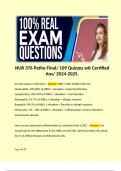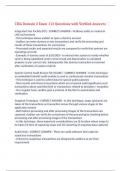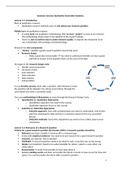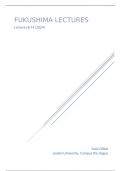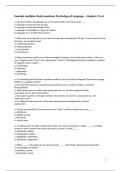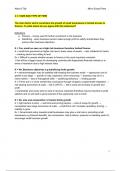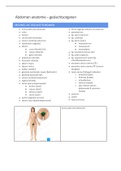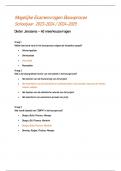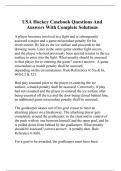Exam (elaborations)
NUR 376 Patho Final/ 109 Quizzes wit Certified Ans/
- Course
- Institution
NUR 376 Patho Final/ 109 Quizzes wit Certified Ans/ . Terms like: Key lab values in Infections - Answer: WBC 4,000-10,000 cells/mcL Neutrophils: 40%-80% of WBCs / elevation = bacterial infection Lymphocytes: 20%-40% of WBCs / elevation = viral infection Eosinophils: 1%-7% of WBCs / elevation ...
[Show more]
